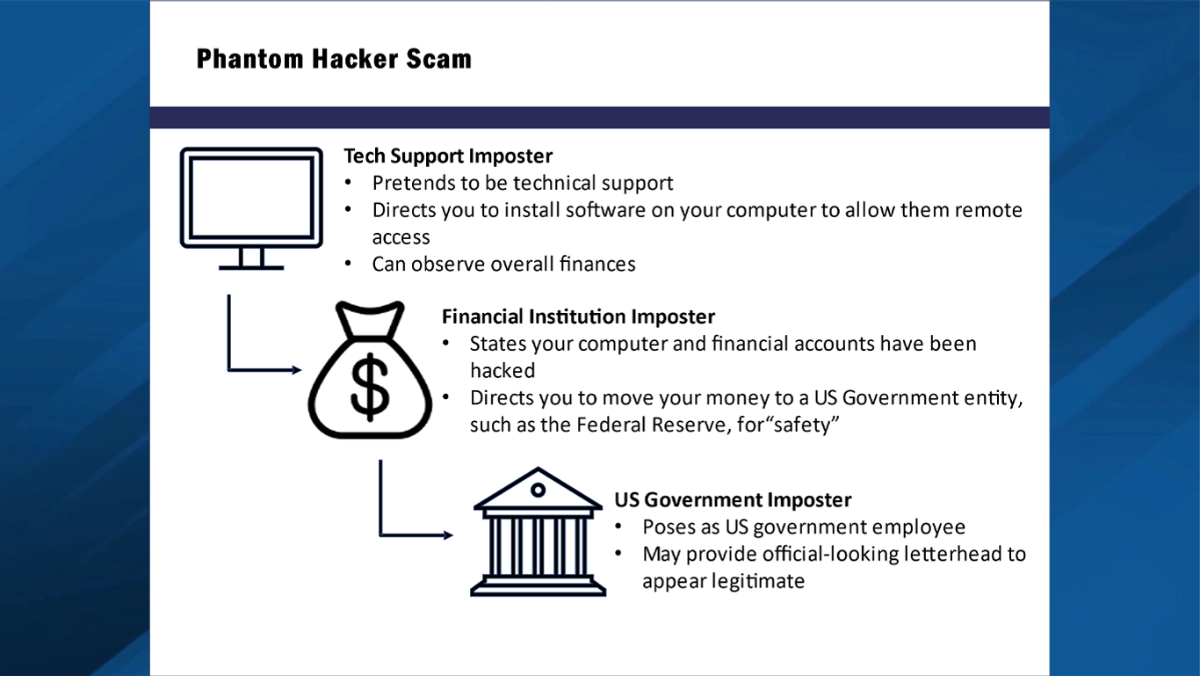
The FBI has warned the public of new "Phantom Hacker" scams. In its latest report, the FBI said that there has been a nationwide increase in the number of such scams which wipe out the victims bank accounts. The fraud has significantly impacted senior citizens, some of whom have lost their entire savings, retirement or investment accounts, according to the FBI.
What is the “Phantom Hacker” scam?
In the Phantom Hacker scam, scammers pose as technology support, banking officials, and government officials to convince their victims that foreign hackers have infiltrated their financial account and they need to take certain steps to safeguard their accounts.

The scammers then ask the victim to immediately move their money to an alleged US government account where their assets will be safe. But the account is actually controlled by the scammers and the victims lose the transferred assets.
Read also:Gustav Klimts Lady With A Fan Sells For 108 Million Becomes Europes Most Expensive Artwork Sold At An Auction
How does the scam unfold?
The scammers call the victims posing as support officials of different companies, banks or agencies. They may send a text, or email, instructing the victim to call a number for “assistance.” Once they establish contact, a scammer directs the victim to download a software to get remote access of the victim’s computer.

They pretend to run a virus scan on the victim’s device and then falsely claim that the victim’s computer is at risk or it has been hacked. The scammers then request the victim to open their financial accounts to check if there have been any unauthorized transactions. This allows the scammers to get a look into the assets of the victims.They then tell the victims that they will receive a call from that financial institution’s fraud department for further information.
Then the financial institution contacts the victim and falsely informs them that their computer and financial accounts have been compromised by a foreign hacker. They then instruct the victim to move his/her assets to a “safe” third-party account, with the Federal Reserve or another U.S. government agency. They may ask the victim to make several transactions over the course of days or months. They also ask the victim to not to inform anyone.

The scammers may even send an email or a letter on a forged official U.S. government letterhead to appear legitimate. Victims who follow the instructions often end up losing their entire banking, savings, retirement, and investment accounts, per the FBI.
Who are the target?
About 19,000 complaints have been filed between January and June this year and half the victims were reported to be over 60 years old comprising 66% of the total losses. As per the FBI, the estimated losses are over $542 million.

How to be safe?
The FBI advised to not click on any unsolicited pop-ups, links, email links, or attachments on any platform or device. Further, people should refrain from calling on any tech-support number provided in a pop-up, text or email. People should also avoid downloading any software at the request of an unknown individual or allow anyone to have control of their computer or devices.
Read also:Your Costco Membership Comes With An Extra 20 Gift Card Right Now Heres How To Get It

The FBI has stated that the US government will never request people to transfer their money to other accounts via wire transfer,gift/prepaid cards, or cryptocurrency. Victims of such scams should come forward and report these fraudulent or suspicious activities to the FBI Internet Crime Complaint Center at www.ic3.gov.
The victims are also advised to provide as much information as possible including details of the scammers, their contacts, bank information, account information and more.



